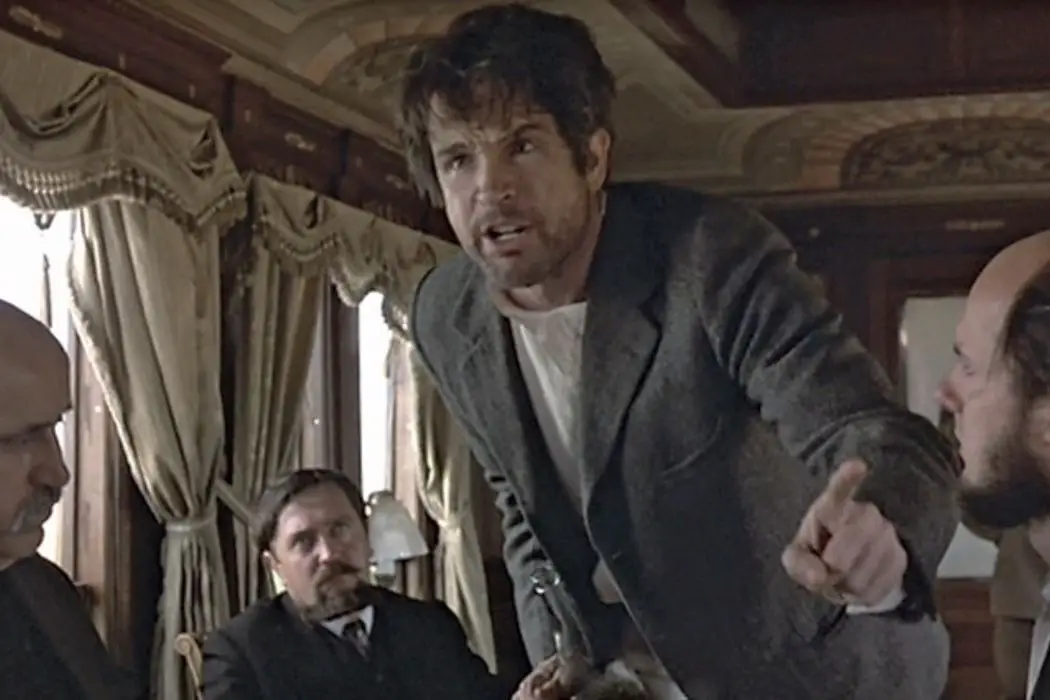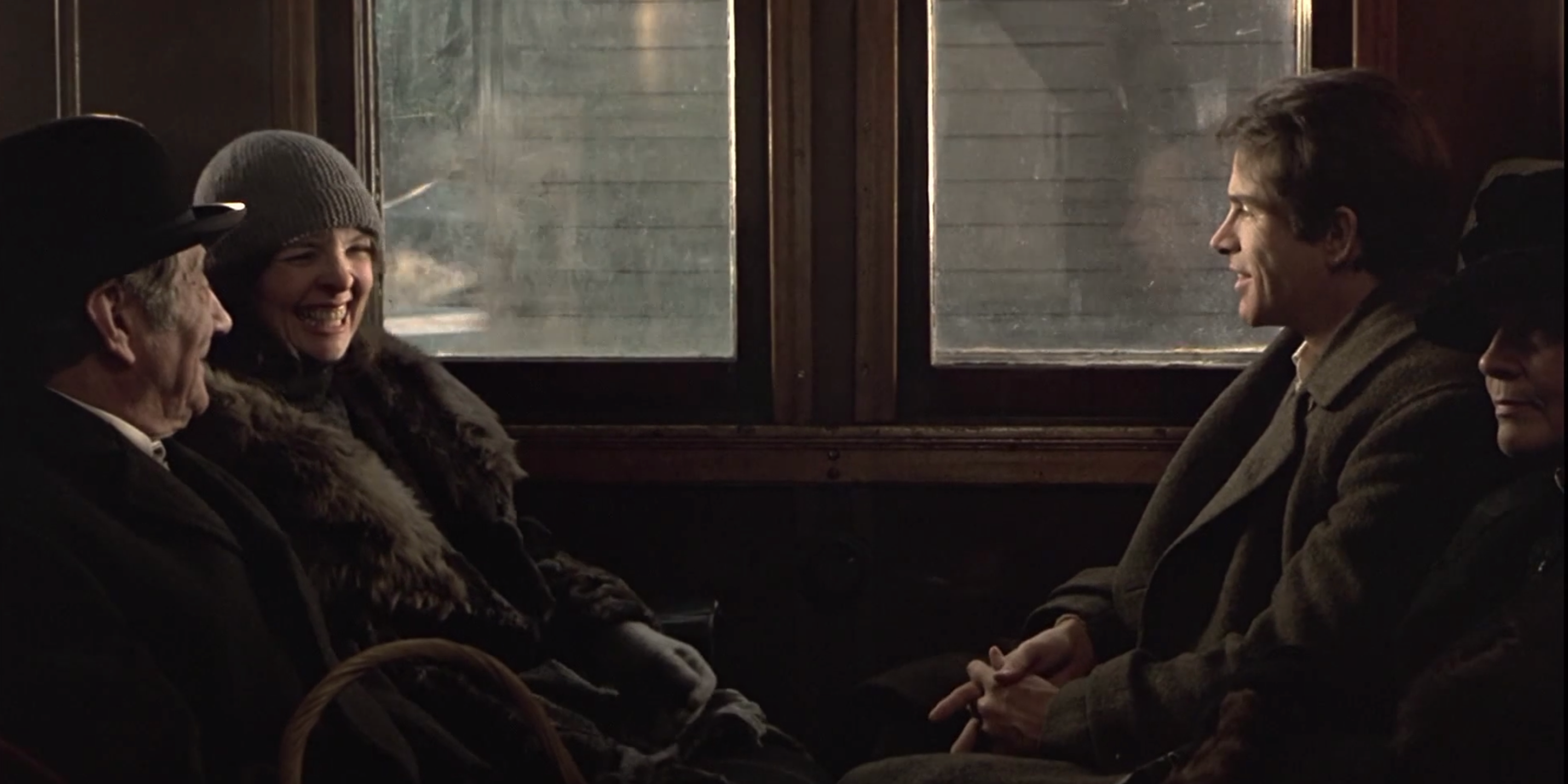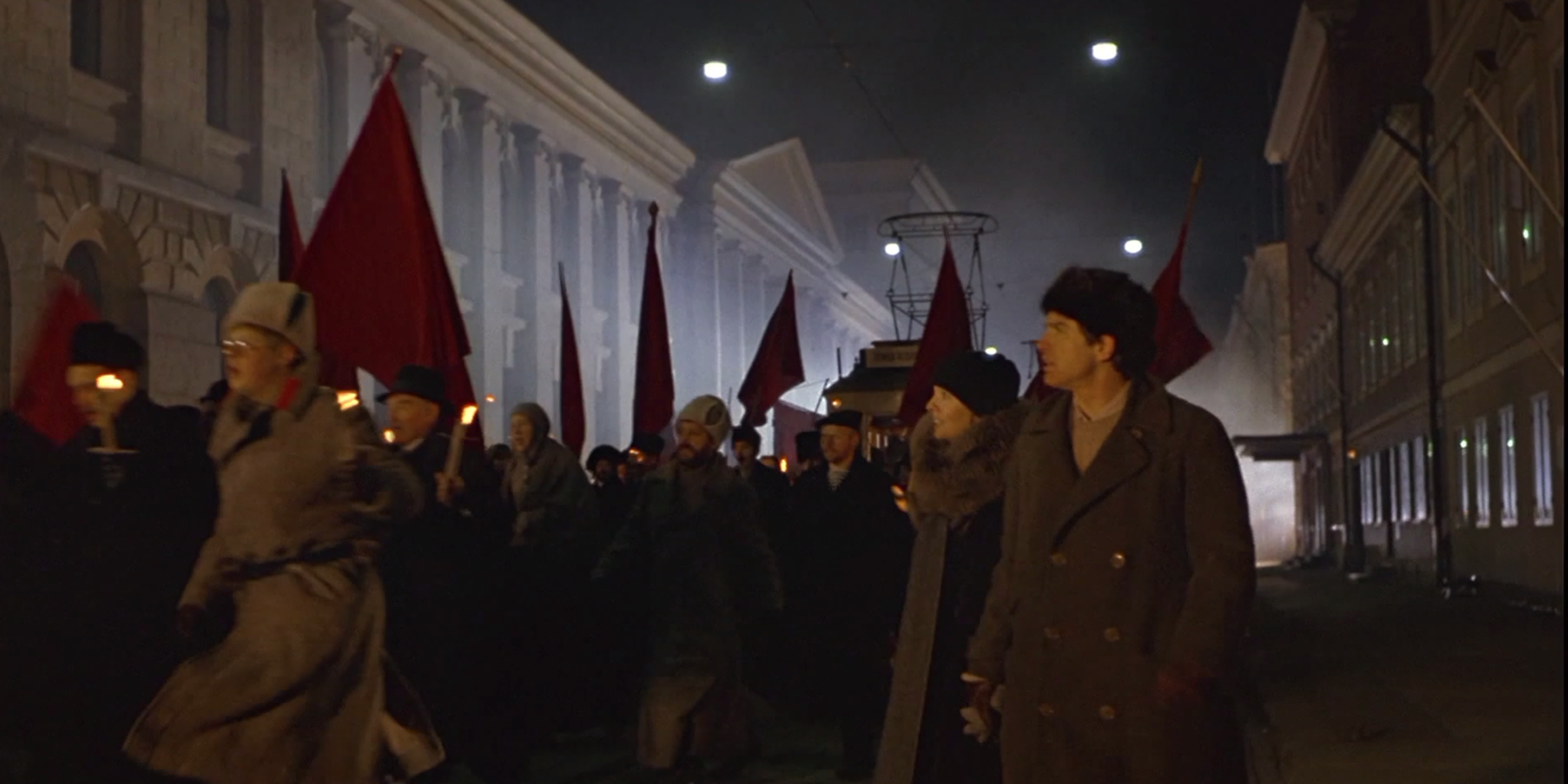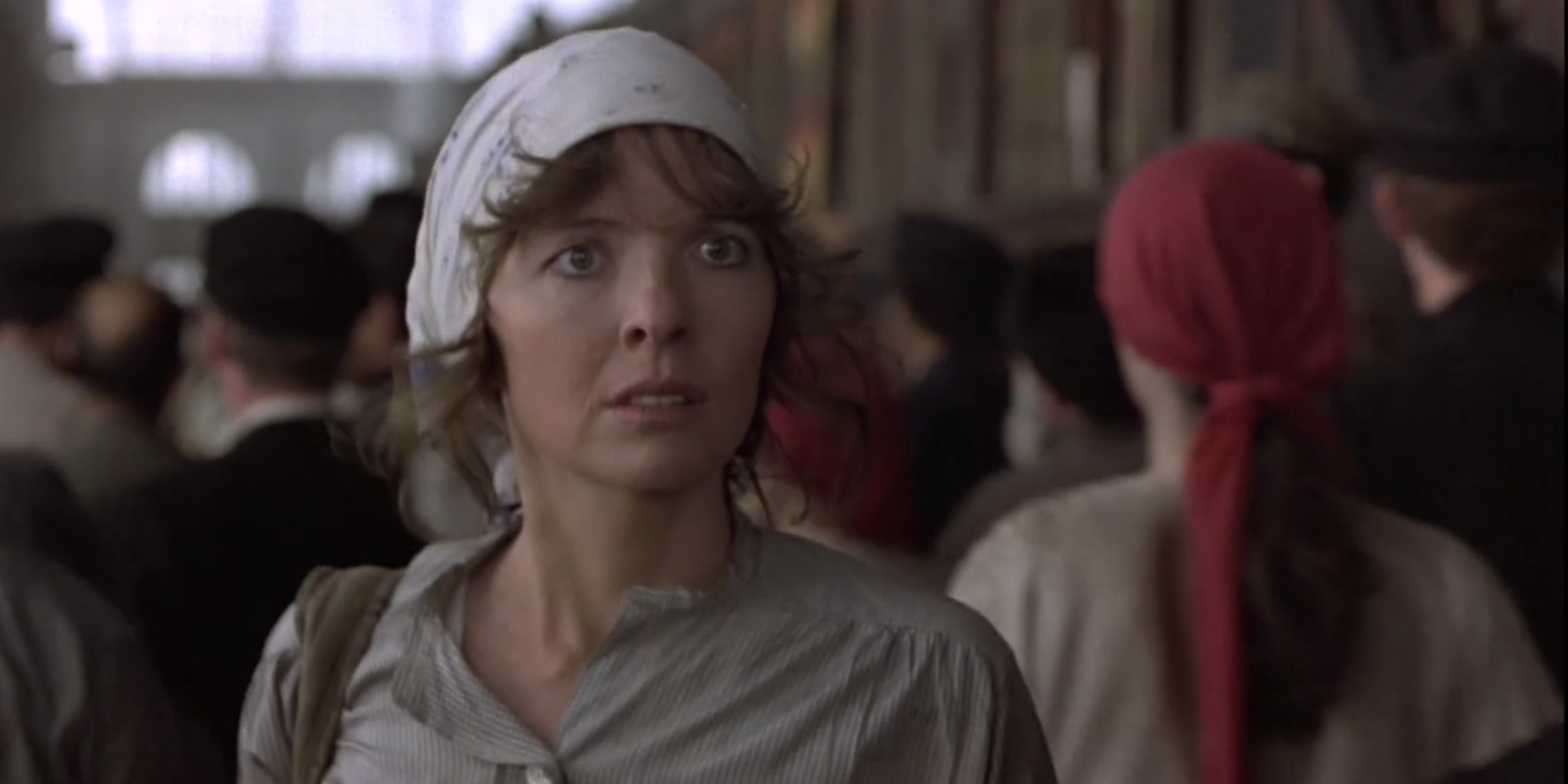REDS: The Forgotten Anti-Capitalist Epic Of The 1980s

Alex Lei is a writer and filmmaker with a BA…
Warren Beatty, at this point, is mostly remembered for his 2017 Oscar slip-up. Unfortunate, since it has nothing to do with his robust and oft-forgotten career, besides vaguely referencing one of his most iconic roles. Beatty was not just a prolific actor, but a vigorous, hard-working producer, and gifted writer/director.
His bumbling persona and confidence behind-camera made him akin to a silent film star in New Hollywood, and like those filmmakers, Beatty has faded from relevance with the coming of new eras. But he is worth remembering, in part, because he was maybe the only man who could have, in 1981, made a $35 million Hollywood epic following the life of communist reporter John Reed.
As a reporter, Reed was a staff writer for socialist magazine The Masses, which meshed well with his labor organizing through the radical International Workers of the World (IWW, whose members are sometimes called “wobblies”).
However, he is most famous for his book Ten Days That Shook the World, his firsthand account of the Russian Revolution that he and his wife Louise Bryant were covering from Petrograd (St. Petersburg). Reed would later die of typhus during the Russian Civil War, while acting as a delegate for the Communist Labor Party of America to the USSR, and was one of three Americans buried in the Kremlin.
Labor of Love
Beatty‘s long-time passion project had been to take Reed’s larger-than-life story and turns it into a larger-than-life film. Using his star-power and probably lots of Beatty charm to secure funding, he packed it with an all-star team that’d make Oscar-baiters of today tremble. Behind the camera, he had legendary Italian cinematographer Vittorio Storaro, fresh off Apocalypse Now (1979), a Stephen Sondheim score, and editing from New Hollywood pioneer Dede Allen and up-and-comer Craig McKay.
The behind-the-scenes talent was matched only in Beatty‘s principal players—himself as John Reed, Diane Keaton as Louise Bryant (then known primarily for her quirky Woody Allen roles as opposed to strong feminist icons), and Jack Nicholson as the young, pre-fame playwright Eugene O’Neill.

This brilliant cast combined with smart writing decisions shows Reed’s story not through the eyes of the man himself, but through Louise Bryant’s, crafting a love triangle which becomes both a literal and metaphorical debate between the optimism of the early 20th century labor movement (Reed) and a more selfish and pessimistic take on the future of politics (O’Neill).
Reed’s itinerant nature and his ability to pack up and move anywhere the action is, pushes Bryant away towards the more grounded O’Neill, but whenever they’re with each other Reed pulls her back in—a love story of a woman caught between two men who are her intellectual equals. Only with Jack Reed does she feel that the two truly add to each other’s brilliance.
Part of how Beatty frames this story is with interviews with friends and associates of Reed and Bryant, who help give validity to a story that seems made up for Hollywood. While it may seem unreal to have Warren Beatty and Diane Keaton in a montage of Bolsheviks storming the Winter Palace set to the ‘Internationale’ anthem, Jack Reed and Louise Bryant probably felt a similar unreality to what they were witnessing.
Red Hollywood
In many ways, Reds seems like what we’d now call “Oscar bait,” with its epic love triangle of powerhouse stars set amid the backdrop of a massive historic moment, but the details keep it far from that. The film deals with, in great detail, the conflicts within the American labor movement at the time of the Russian Revolution—the difference between the American Federation of Labor (AFL) and IWW, the divide between intellectuals and workers, factions of the American Communist Party, their relationship to the Bolsheviks, etc.

But it is not a film that remotely questions labor’s value, something Hollywood has, at best, had a mixed relationship with, something Beatty happily points out in his acceptance speech for Best Director at the 1982 Academy Awards:
“And I want to say to you [Gulf and Western Industries] that no matter how much we might have liked to have strangled each other from time to time, I think that your decision, taken in the great capitalistic tower of Gulf + Western, to finance a three-and-a-half hour romance which attempts to reveal for the first time just something of the beginnings of American socialism and American communism, reflects credit not only upon you, I think it reflects credit upon Hollywood and the movie business wherever that is.”
The line about “the beginnings of American socialism and American communism” got a single clap from the audience. The irony is blatant, and even though pro-union films like 1979’s Norma Rae have done well come awards season, traditionally the Academy are not fans of the pro-labor stance. And Reds is not just a film where this is window dressing —the film is genuinely interested in the conversations of the time.

In many ways, it’s these technical and esoteric conversations about labor politics that hold the film back from being a standard Hollywood love affair and it makes it feel like a series of conversation from a bygone time. Whereas Doctor Zhivago (1965)—another epic set amidst the Russian Revolution and subsequent Civil War—uses its backdrop to tell a love story, Reds does the opposite, instead having its love story reveal its world and politics.
Reds: End of the Revolution
No one in 1981 could have imagined how ubiquitous neoliberal ideology would become in American politics after that decade, and while it certainly is surprising that the film was made back then, it is much harder to imagine it getting made now.
While Heaven’s Gate (1980) may have symbolized the end of auteur-controlled epics, Reds may be the final prestige picture that ideologically represents New Hollywood—the revolutionary spirit of Reds, as Beatty pointed out in his acceptance speech, is ironic considering the funding methods of Hollywood. And while Beatty and his radical and progressive politics had their moment at the Academy Awards, garnering 12 nominations and three wins, the ideology and interests of the funders won out in the end.
Reds is a perfect historical example of the drastic ways in which ideology shifts reflected through their representations in media. For the American left at the turn of the century, talking of the merits of socialism and communism were commonplace, and Woodrow Wilson was regarded as the anti-war candidate instead of a racist charlatan.
The time-capsule of discourse presented in Reds is not unlike the time-capsule of a Hollywood now long gone which Reds was made in, and which Beatty was a star of—one where progress was more than just lip service for moneyed interests.
Have you seen any of Warren Beatty’s directorial efforts? What do you think of the politics in them?
Reds was originally released on December 4th, 1981 in the U.S.
Does content like this matter to you?
Become a Member and support film journalism. Unlock access to all of Film Inquiry`s great articles. Join a community of like-minded readers who are passionate about cinema - get access to our private members Network, give back to independent filmmakers, and more.
Alex Lei is a writer and filmmaker with a BA in Film with a minor in Philosophy from Montana State University, focusing his thesis on post-Stalinist Soviet filmmaking. Currently based in Baltimore, MD, he's a fan of Russia, cowboys, and sometimes Russian cowboys.













